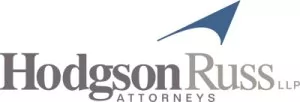New Hampshire Files Bill of Complaint Against Massachusetts and Five New SALT Petitions Filed with The Court
On October 29, 2020, the State of New Hampshire brought an action before the Court against the Commonwealth of Massachusetts seeking to enjoin Massachusetts from enforcing its new telecommuting regulation against New Hampshire residents, in New Hampshire v. Commonwealth of Massachusetts. Under this regulation, income earned for work performed within New Hampshire is taxed by Massachusetts as Massachusetts source income. New Hampshire requests the Court to rule that the regulation violates the Commerce Clause and the Due Process Clause of the U.S. Constitution, and for the Court to enjoin Massachusetts from enforcing the regulation, enter an injunction requiring Massachusetts to refund all funds collected from nonresidents under the regulation, and award costs and reasonable attorney fees, as well as grant any other relief available at law or equity.
Also, before the Court are five new petitions for writ of certiorari. Four of the petitions involve real property tax matters, with two specifically addressing due process related to tax sales: Harris County v. PRSI Trading, LLC (Docket No. 20-563)1 where the Court is being asked to review a decision by the Texas Supreme Court that found that inventory located in a foreign trade zone for export out of the United States was entitled to a local ad valorem property tax exemption; Pisztora et al v. City of Pittsburgh, (Docket No. 20-359)2 , where the Court is asked to review a decision of the Commonwealth Court of Pennsylvania in which the lower court refused to void a treasurer's sale based on lack of notice to the appellants; Barnette v. HBI, LLC et al (Docket No. 20-321)3 , where the lower court found that the purchaser complied with the statutory notice requirements for obtaining a tax deed and such requirements did not violate due process; and, Pappas et al, v. A.F. Moore & Associates, Inc., (Docket No. 20-316)4 , where the Court is asked to review a decision by the Seventh Circuit of the U.S. Court of Appeals that found that neither the Tax Injunction Act nor comity bars the taxpayers' equal protection clause federal lawsuit over the alleged disparate valuation of their properties. The fifth petition for writ of certiorari, Shaffer v. Commonwealth of Massachusetts (Docket No. 20-501)5 , involves a constitutional due process challenge to the decision by the Supreme Judicial Court of Massachusetts that upheld the assessment of Massachusetts estate tax on the value of intangible assets in a qualified terminable interest property (QTIP) trust of a decedent domiciled in Massachusetts at the time of death, which QTIP trust was created by the decedent's predeceasing spouse in New York.
The Court also denied two petitions for certiorari discussed in last month's article. Finally, we continue to await the issuance of the Special Master's Reports in the MoneyGram cases: Delaware v. Pennsylvania, 220145 and Arkansas et al. v. Delaware, 220146. These cases involve a dispute between Delaware and several other states concerning which states have priority rights to claim abandoned, uncashed MoneyGram official checks.
New Hampshire v. Massachusetts: Extraterritorial Taxation of Telecommuters?
On April 21, 2020, Massachusetts adopted a temporary emergency regulation declaring: "For the duration of the Massachusetts COVID-19 state of emergency, all compensation received for personal services performed by a nonresident who, immediately prior to the Massachusetts COVID-19 state of emergency, was an employee engaged in performing services in Massachusetts, and who during such emergency, is performing services from a location outside Massachusetts due solely to the Massachusetts COVID-19 state of emergency, will continue to be treated as Massachusetts source income subject to personal income tax under M.G.L. c 62 and personal income tax withholding." The temporary emergency regulation applied retroactively to March 10, 2020. On July 21, 2020, a second temporary emergency regulation was adopted that imposed similar requirements, and ultimately, on October 16, 2020, a final formal administrative rule (the "Tax Regulation") was approved, which provides:
"Under M.G.L. c. 62 § 5A(a), income of a nonresident derived from a trade or business, including any employment, carried on in the Commonwealth is sourced to Massachusetts. Pursuant to this rule, all compensation received for services performed by a non-resident who, immediately prior to the Massachusetts COVID-19 state of emergency was an employee engaged in performing such services in Massachusetts, and who is performing services from a location outside Massachusetts due to a Pandemic Related Circumstance will continue to be treated as Massachusetts source income subject to personal income tax under M.G.L. c. 62 and personal income tax withholding pursuant to M.G.L. c. 62B, §2."
The Tax Regulation took effect immediately and applied retroactively to March 10, 2020, with a stated term of the earlier of December 31, 2020, or 90 days after the date on which the Governor of the Commonwealth gives notice that the Massachusetts COVID-19 state of emergency is no longer in effect.
A Pandemic Related Circumstance is defined generally to include the following situations: 1) a government order issued in response to the COVID-19 pandemic; 2) a remote work policy adopted by an employer in compliance with federal or state government guidance or public health recommendations relating to the COVID-19 pandemic; 3) the worker's compliance with quarantine, isolation directions relating to a COVID-19 diagnosis or suspected diagnosis, or advice of a physician relating to COVID-19 exposure; or 4) any other work arrangement in which an employee who performed services at a location in Massachusetts prior to the Massachusetts COVID-19 state of emergency performs such services for the employer from a location outside Massachusetts during a period in which the Tax Regulation is in effect. See 830 CMR 62.5A.3.
Massachusetts' prior tax policy (pre-Tax Regulation).
As set forth in New Hampshire's Motion for Leave to File Bill of Complaint, "[u]ntil recently, Massachusetts regulations made clear that nonresidents owed taxes only for the work they performed while physically within Massachusetts":
"Under the prior regime, 'when a non-resident employee is able to establish the exact amount of pay received for services performed in Massachusetts, that amount is the amount of Massachusetts source income.' 830 CMR 62.5A.1(5)(a) (2008). When a precise determination was not possible, Massachusetts regulations required allocation of income between taxable Massachusetts sources and non-taxable out-of-state sources by using a fraction, 'the numerator is the number of days spent working in Massachusetts and the denominator of which is total working days.'"
According to New Hampshire, this prior tax policy "respected New Hampshire's rights, as a coequal sovereign . . , to enact its own tax policies upon which its residents may rely."
The New Hampshire Advantage
New Hampshire makes clear in its Motion for Leave to File Bill of Complaint, that it "has made the deliberate policy choice to reject a broad-based personal earned income tax or a general sales tax." Furthermore, it maintains that this policy choice, "has resulted in, on average, higher per capita income, lower unemployment, and a competitive edge in attracting new business and residents," which it deems the "New Hampshire Advantage." New Hampshire argues that "Massachusetts has taken deliberate aim at the New Hampshire Advantage by purporting to impose Massachusetts income tax on New Hampshire residents for income earned while working within New Hampshire." Thus, New Hampshire brings this suit to "rectify Massachusetts' unconstitutional, extraterritorial conduct, which ignores deliberate unique policy choices that are solely New Hampshire's to make."
Moreover, New Hampshire argues that the Tax Regulation "undermines an incentive for businesses to locate capital and jobs in New Hampshire, a motivation for families to relocate to New Hampshire's communities, and the State's ability to pay for public services by reducing economic growth." It also argues that the new tax policy "weakens efforts to recruit individuals to work for the state government.... endangers public health in New Hampshire by penalizing workers for following public health guidance and working from home rather than from their offices.... [a]nd it undermines New Hampshire's sovereign duty to protect the economic and commercial interests of its citizens."
To view the full article, please click here.
Footnotes
1. Harris County v. PRSI Trading, LLC (Docket No. 20-563), Tex. S. Ct., Docket No. 18- 0664 (2/28/2020).
2. Pisztora et al v. City of Pittsburgh, (Docket No. 20-359), ruling at Pa. Commw. Ct., Docket No. 897 C.D. 2017 (11/1/2019).
3. Barnette v. HBI, LLC et al (Docket No. 20-321), ruling at Neb. S. Ct., Docket No. S-19- 147 (04/10/2020).
4. Pappas et al, v. A.F. Moore & Associates, Inc., (Docket No. 20-316), ruling at U.S. Ct. App. 7th Cir. Docket. No. 19-1971 (1/29/2020).
5. Shaffer v. Commonwealth of Massachusetts (Docket No. 20-501), ruling at SJC-12812 485 Mass 198 (7/10/2020).
Originally published by Thomson Reuters Checkpoint's Journal of Multistate Taxation and Incentives.
The content of this article is intended to provide a general guide to the subject matter. Specialist advice should be sought about your specific circumstances.


